Diversity - Newsletter November 2020
NEWSLETTER
2020 was the year of diversity advocacy, and within the MCAA the GEDI Working Group mobilised and created the Rainbow Pills Series, a call to fight intolerance and LGBTQ+ phobia together.

2020: THE YEAR OF DIVERSITY ADVOCACY
As we approach the end of the year, it is now time to look back and reflect upon everything that happened in 2020… What a crazy year! Many will remember 2020 as the year the COVID-19 pandemic shook the world and revealed all that’s good, bad, and wonderful about us. But we also would like to remember it as the year of "Diversity": the year of insurgence for civil rights and social justice, the year of the democratisation of the "Me Too" movement worldwide and across fields, the year the "Black Lives Matter" movement shouted "we are fed-up of racism and police brutality," and the year (despite lockdown and social distancing) the fight for LGBTQ+ rights continued and pride manifestations (in June 2020) continued on the streets and on social media and on the internet.
THE MCAA GEDI WORKING GROUP
The MCAA Genders, Equity, Diversity, and Inclusion (GEDI) Working Group advocates for a better and fairer research environment. We have a firm belief that embracing diversity as well as providing a safe and nurturing research and academic environment to all researchers irrespective of any individual characteristic (e.g. ethnicity, cultural and religious belief, gender, sexual preference etc.) are key to achieve excellence in research.
There is a need now more than ever to stand up for LGTBQ+ rights and demand acceptance, visibility, equal opportunities, and equal treatment for LGTBQ+ students and researchers in research, both in industry and academia. GEDI decided to collect and share messages from role model LGTBQ+ researchers and allies.
THE RAINBOW PILLS SERIES
In a very short time, the team mobilised and created the "Rainbow Pills" Series. Each "Pill" enclosed a short video and represented one of the colours of the Rainbow flag (Red, Orange, Yellow, Green, Blue, Violet), the symbol of diversity and LGBTQ+ community. The Rainbow “pills” are a call to fight intolerance and LGBTQ+ phobia together.
The first video was posted on 24 June on GEDI’s Facebook and Twitter accounts. We shared a new video each day following the countdown until the International LGBTQ+ Pride weekend held on 28-30 June.
In each video, each guest’s contribution was triggered by three questions:
- What is diversity for you?
- Why is it important for LGBT QI+ researchers to be visible?
- What advice would you give to a younger LGBT QI+ researcher?
The messages collected from our guests inspired us, moved us to tears, made us laugh, and made us feel very proud and hopeful. Most importantly, they resonated with our audience and followers on social media, where we received heart-warming reactions and reviews. The series also ignited a lot of internal discussions in our association and among our group members. Is LGBTQ+ visibility still an issue in research in industry and academia? Is it harder for individuals identifying as female, non-binary or gender fluid to come out in research environments? Do we dare stand up as LGBTQ+ role models in STEM?
THE RAINBOW PILLS TEAM
The success of this campaign is owed to the passion and hard work
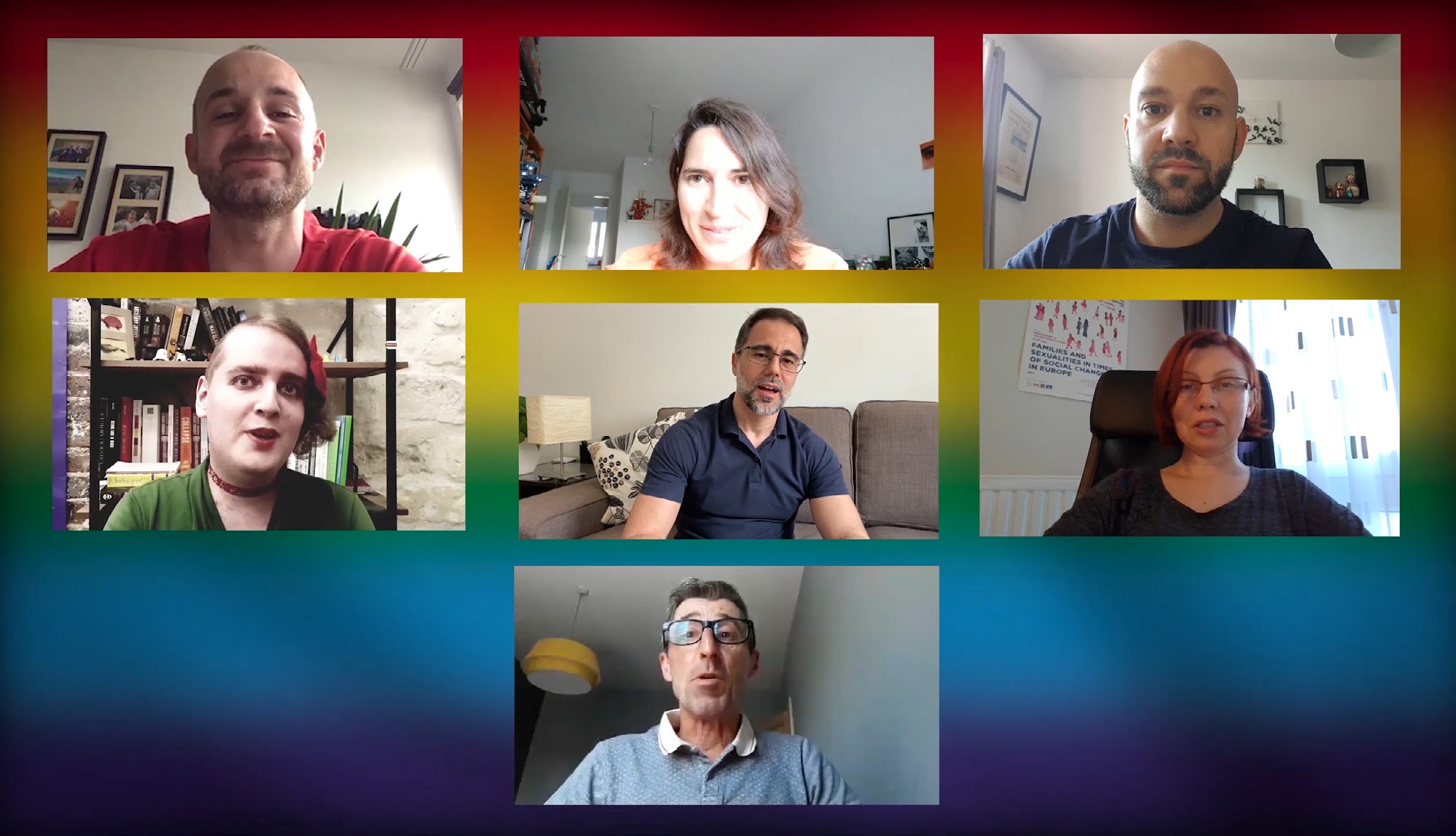
of our terrific "Rainbow Team," formed by Magda Theodoridou, Brunella Balzano, Nadia Metoui, and Tania Romacho. We would also like to thank our brave, charming and inspiring guests: José Gámez, Tania Romacho, Aurelio Hidalgo, Tanja Vuckovic-Juros, Riccardo Maddalena, Enka Blanchard, and Maurice O´Brien, who had the generosity to share wise and uplifting messages to encourage the new generation of LGBTQ+ researchers. This would not have been possible without their contributions.
Finally, we would like to thank Ahlem Metoui, our video editor and sound engineer who volunteered to make the videos look and sound even more amazing (you can support her by following her work on Instagram @ahlem.metoui).
Our hope is that the Rainbow Pills series becomes an MCAA tradition for the coming Prides and we count on fellows to help us advocate for LGBTQ+ diversity in any field of research in industry and academia.

Watch the Rainbow Pills videos posted on Twitter @gedi_mcaa:
Red Pill by José Gámez "Research is to make something unique to give to the world"
Orange Pill by Tania Romacho "Diversity is an asset in research"
Yellow Pill by Riccardo Maddalena "Follow your dream, be a Researcher!"
Green Pill by Enka Blanchard "The importance of being visible regardless of our marginalization
TANIA ROMACHO
BRUNELLA BALZANO
MAGDA THEODORIDOU
NADIA METOUI
MCAA GEDI WORKING GROUP
The Rainbow Pills series was created as a call to fight intolerance and LGBTQ+ phobia. Ruben Riosa caught up with several participants to find out more about this initiative.
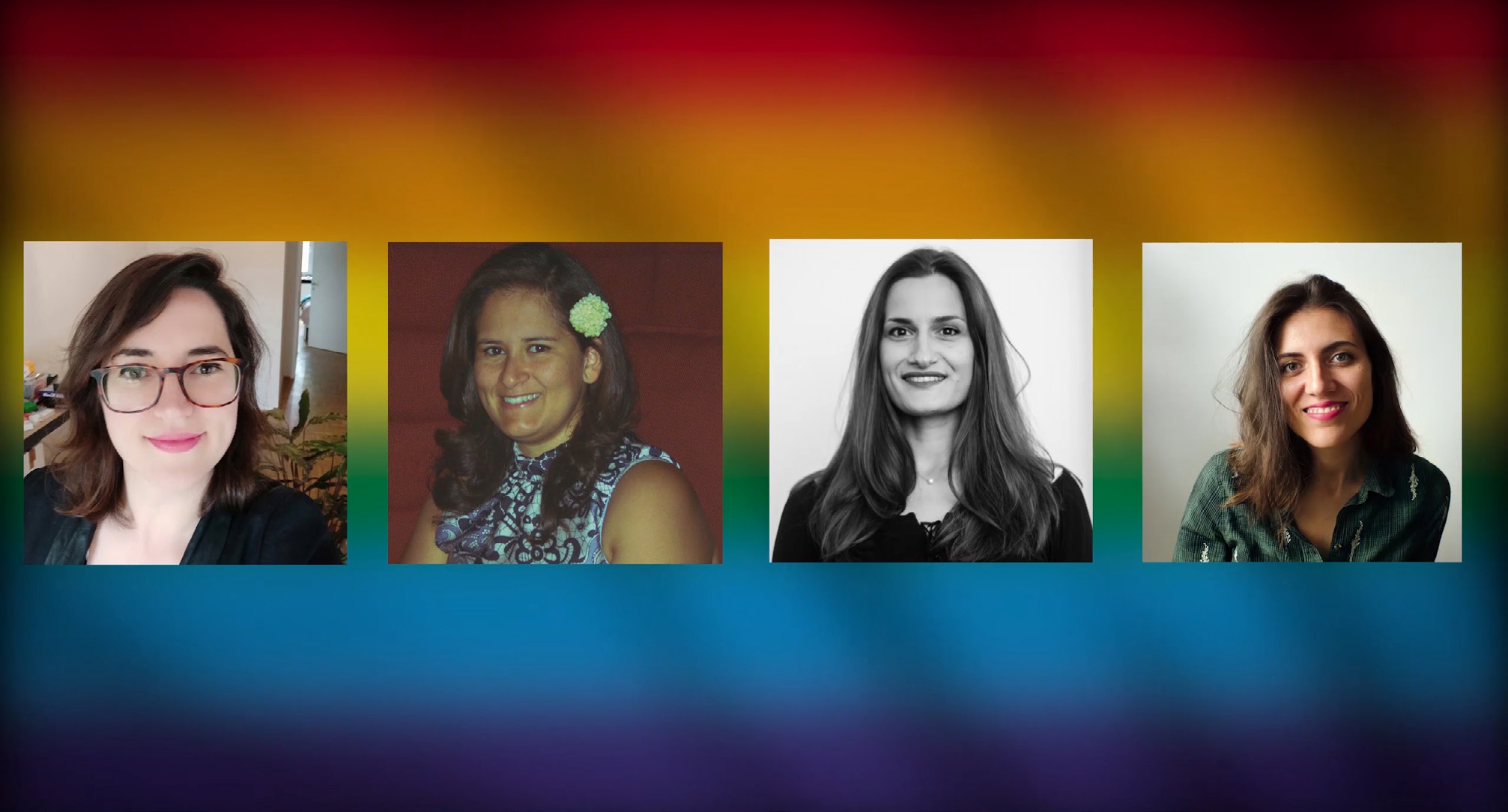
This year, the MCAA Genders, Equity, Diversity, and Inclusion (GEDI) working group created the "Rainbow Pills" series, in which each "pill" displays a short video and represents one of the colours of the Rainbow flag (Red, Orange, Yellow, Green, Blue, Violet) – the symbol of diversity and LGBTQ+ community. The “Rainbow Pills” were created as a call to fight intolerance and LGBTQ+ phobia together.
To learn more about it, Ruben Riosa of the MCAA Editorial Team interviewed several organisers and speakers of the Rainbow Pills series: Tania Romacho, Aurelio Hidalgo, Enka Blanchard and Riccardo Maddalena. Who better than this group to help us unravel what the Rainbow Pills series is and how it can play an important role in promoting diversity in science.
INTRODUCTIONS
Tania: I am the secretary of the MCAA GEDI working group as well as a Spanish postdoctoral researcher in the Life Science area. My work consists in discovering and developing novel therapies for diabetes. I am passionate about science: teaching it and advocating for it. I love hiking with my dog and enjoying music, cinema, and cuisine with other humans.
Aurelio: I am an assistant professor at the Autonomous University of Madrid (Spain). I am the principal investigator (PI) of the HT Discovery Lab at the Centre for Molecular Biology "Severo Ochoa" also based in Madrid. My area of research is enzyme biotechnology, especially enzyme discovery and engineering. I did my BSc, majored in biochemistry, and did my PhD in microbial bioremediation. I am passionate about enzymes, of course, but also musicals, sci-fi movies (good ones), curling (yes, the sport!) and food/wine.
Enka: I'm a French transdisciplinary researcher, with a scientific background (mostly mathematics), although I now mostly work on social subjects. This means I work on projects ranging from geography of disability to voting systems, but also queer theory and digital humanities. Currently, I am a postdoctoral researcher at the Digitrust Consortium (France).
Riccardo: I am a Lecturer in Civil Engineering at Cardiff University (UK) as well as a member of the GEDI working group. I enjoy travelling around the world (though COVID-19 is making it challenging), squash, cycling (though it’s quite a new interest), and I am a big believer/ fighter for equality for all the protected characteristics.
What’s special about the Rainbow Pills series?
Tania: We had this last minute idea: since there would be no physical Pride Parade this year, we had the need to find a way to demonstrate. It came as a response to the very ugly wave we were, and still are, facing in terms of intolerance, homophobia, and, overall hate speech.
Aurelio: The Rainbow Pill series was a great initiative. I was hesitant at first, but then I went in all the way. It made me realise the relevance of scientists, and in particular PIs, being publicly ‘out’, acting as role models, providing a more real (and diverse) picture of scientists. Yes, there are LGBTQIA+ researchers out there, just like anywhere else. Science is also something for us.
Riccardo: It was great! The most exciting part was recording the video: recording, playing and deleting so many times! But the true excitement was when it was shared on social media. The huge support I received from friends and followers was heart-warming.
What will we gain by becoming more diverse? Why is it important?
Tania: As I explain in the video, diversity is an asset. A more diverse science is an enriched science. Diversity brings in multidisciplinary approaches. A broader vision to face scientific challenges can only speed up success.
Aurelio: In my experience as a PI, diverse teams are stronger teams. They have different points of view, different approaches, and their members complement one another.
Enka: I tend to be the diversity token, as I'm non-binary and disabled (among other things). But just being aware of the issues that those communities face and talking to them already impacts my work, with positive outcomes. For example, by trying to work on accessible voting systems for blind voters, we ended up creating a system that is more usable and secure for everyone (whether they are disabled or not). Often enough, trying to include everyone from the start gives great results (instead of tacking on inclusion issues after the fact).
Riccardo: Gain: look at our day-today world from a different perspective. Important: if you were to be on the other side (that is, being LGTBQA+), you would soon realise how important it is to be recognised and treated with dignity.
Gender diversity in academia: what’s the situation?
Tania: It is not good enough, and please, I would rather speak about ‘genders’ diversity. We still need more diversity especially in leading positions.
Aurelio: Unfortunately, pyramid-like, with decreasing female presence as you go up the tiers of academia. The number of female PIs and professors is still under about 40 %, from what I remember. Further positive action is still needed in terms of career moves and deadlines for grants, for example. Although some efforts are being made, probably because those policies cost nothing. Practical measures, such as day-care, hiring extra personnel, or having specific funding to prevent severe career breaks (from which it is hard to return) cost money and I guess that is why they are not widespread. In my humble opinion, practical and political measures need to go hand in hand.
Enka: As for gender diversity in academia, I come from a field that's quite poor on this front, and where sexism and transphobia are still very present. That being said, I've been very lucky in having supervisors who were not only fine with it, but stood up for me. My first advisor’s stance for queer inclusion (out of principle) was what pushed me to come out to him, knowing that I would find an ally.
Riccardo: In the UK we have taken huge steps forward but there is still a long way to go. Peer-support is paramount in ensuring gender equality.
What's one thing we can do to positively impact diversity?
Tania: Request funding agencies and academia to re-evaluate our standards and definition of ‘excellent research.’ If we make rules to let only a minority succeed while others are discriminated based on individual characteristics, science will never be diverse.
Aurelio: Measures need to be taken across the board because this is a multi-dimensional problem. From the institutional point of view, we need diverse panels at all levels (experts, evaluators, conferences, journal editors, reviewers, governing bodies etc.). From the executive point of view, we need more practical measures including diversity hires. Finally, from the societal point of view, we need more visibility of this diversity to educate and show the younger generations that science is also for them, regardless of gender, ethnicity or sexual orientation.
Enka: I think the one important thing to do is to actively broadcast one's support (as long as it's sincere), instead of going from the assumption that people will know one is an ally. Especially in contexts in which there is institutional pushback, fighting for inclusion (as someone not necessarily directly concerned) protects those who have less power, and creates a welcoming environment.
Riccardo: We need to educate people, talk to them and work with them.
Any additional thoughts?
Tania: I was very moved by the engagement of everyone involved in the Rainbow Pill campaign. Everyone joined efforts to launch it on time, in spite of the very short time.
I was also very impressed by the positive reaction of the people on the campaign in social media. So far, most reactions were very positive! I want to show my gratitude to everyone who participated. I would like to encourage fellows to help us gain diversity in the next campaign. I hope it becomes a MCAA ‘classic.’
To conclude, I would like to thank Tania, Aurelio, Enka and Riccardo, for taking the time to be interviewed and for sharing with us their personal experience within the MCAA “Rainbow Pills” series.
INTERVIEW BY RUBEN RIOSA
MCAA EDITORIAL TEAM
We caught up with the MCAA South East Asia Chapter’s Chair Jenny Lind Elmaco to discuss her commitment and experience in promoting diversity at work.
Jenny, in her own words
I was born in the Philippines but have always had a global mindset. I have a Master’s Degree in Peace, Security, Development and International Conflict Transformation from the University of Innsbruck (Austria) and the Universidad Jaume I (Spain). A European Commission scholarship enabled me to earn a second Master’s Degree in Global Studies from the University of Vienna and the University of Leipzig.
I graduated from Silliman University in the Philippines with a degree in Political Science in 2002. I also participated in a one-year exchange programme at the International Christian University in Japan where I interned at the United Nations. I was an awardee of the Ayala Young Leaders, the Jose Rizal Model Student of the Philippines and the Ten Outstanding Students of the Philippines.
I earned my International Doctorate in Peace, Conflict and Development Studies from Catedra UNESCO de Filosofia para la Paz, sobresaliente cum laude.
I am a geek at heart and fascinated with business. This is why I continued my studies in business while working for an international corporate foundation. I earned an MBA from the EAE Business School in Madrid, Spain, with a specialisation in Big Data and Business Intelligence. I graduated with honours.
Prior to that, I was part of the Junior Research Group on Civil Society and Multi-level Governance sponsored by the German Ministry for Science and Technology and housed in the historic city of Muenster. I was also part of the Cluster of Excellence of the European Center for Information Systems for the Project, Network e-Volution in Germany. I have been a Visiting Fellow of the Vienna School of Business and Economics for their Non-Profit Management Team.
My first job was with the Office of the President. I had met then Philippine President, Gloria Macapagal-Arroyo during the awarding ceremonies for youth leaders and she offered me a position as one of the youngest members of the Presidential Staff. I was Project Director for Youth Affairs in the Office of the President, Malacañang Palace as well as in the Office of the Chief of Staff and the Presidential Management Staff. I have also worked with nonprofits including Women without Borders in Vienna and co-founded SPARK, an NGO for the economic and political empowerment of women in the Philippines.

"I was the only non-European/ non-White person on the team."
Passion is what drives Jenny’s commitment in promoting diversity. “I served as Social and Gender Development Consultant at the Asian Development Bank and continue to be connected with the International Federation for Business and Professional Women, which I represent every year at the United Nations Commission on the Status of Women in New York,” she says, linking her personal commitment to her professional activities.
Jenny also notes how she also benefited from inclusive policy. “When I was part of the research group of the University of Muenster, where I was the only non-European/person of colour, there was strategic support coming from the administration and from my colleagues.”
She appreciated the involvement of the Rectorate Committee for Diversity, which advises the Rectorate on matters of diversity and equal opportunity with respect to all members of the University. According to Jenny, the Rectorate Committee is part of the University’s proactive, anti-racist diversity policy committed to ensuring equitable participation of all university members regardless of their social background, ethnicity, age, gender, (dis)abilities, religious affiliation or sexual orientation.
This support contributed to her personal experience in promoting good practices in favour of diversity. “When I worked for Fundacion SERES in Madrid which is an umbrella organisation on corporate social responsibility programmes of over 140 companies, we worked closely with a lot of multinational companies and we facilitated the exchange of their best practices when it comes to Diversity Management.
I was the only non-European/nonWhite person on the team and so I knew my voice needed not only to be heard but also to be understood as well as amplified,” explains Jenny.
EMBRACING AN INCLUSIVE CULTURE
Quoting Malcolm Forbes who said that diversity is the art of thinking independently together, Jenny notes the following: “If an organisation embraces an inclusive culture, mindsets, and processes to ensure that everyone feels that they belong and that they are treated fairly, then it allows the organisation to maximise its gains from the potentials that have been unleashed because there are no barriers to expression and creativity. People tend to be more productive when they are content and happy with what they are doing.”
Diversity drives also innovation, as it is broadly recognised that companies with policies that promote workers across sexual orientation or gender spectrum are more innovative and productive. “The take-home message here is that a business which relies on innovation will benefit significantly from supporting diversity within its organisation.” Here, Jenny quotes Richard Warr along with Roger Mayer of NC State, and Jing Zhao of Portland State University, and their results published in a study called “Do Pro-Diversity Policies Improve Corporate Innovation?” in the journal Financial Management.
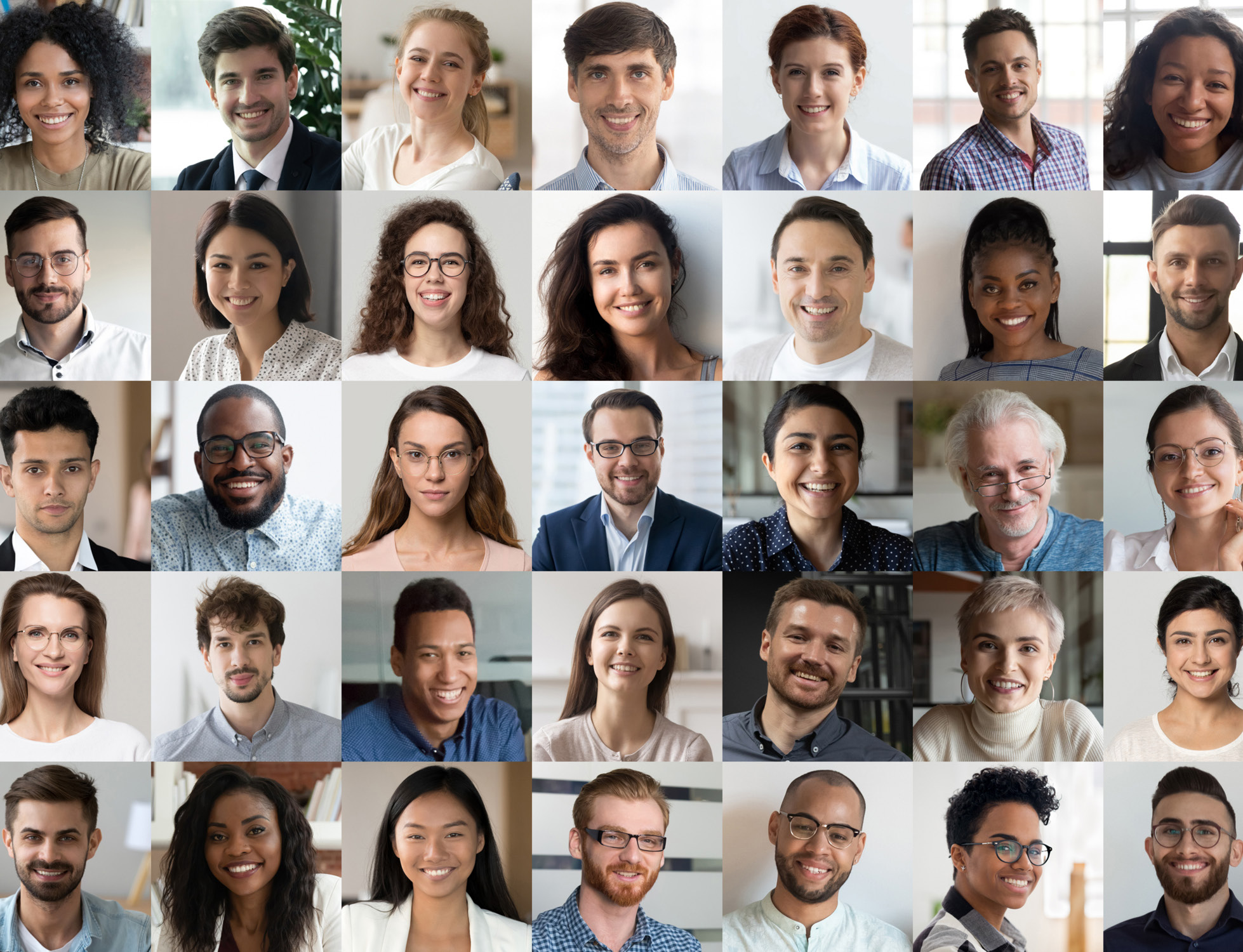
What’s more, diversity improves Total Quality Management (TQM). “When employees feel involved, respected and connected, employers can tap into a greater richness of ideas and problem-solving approaches. This also helps companies to respond effectively to customers, attract and retain high performing employees, empower teams to collaborate, raise productivity, future-proof their businesses, and, ultimately, deliver sustainable growth,” explains Jenny.
Most millennials, the future workforce, consider diversity as a core value when they weigh career opportunities. Jenny points to the findings of a study conducted by PwC in 2015, which suggests that 86 % of female millennials take a careful look at employers’ policies on diversity, equality and inclusion before applying.
Better business performance is the result of inclusive decision-making, concludes Jenny, who also refers to a study carried out by Cloverpop. These findings show that inclusive teams make better business decisions up to 87 % of the time.
In addition, decisions made and executed by diverse teams deliver 60 % better results. “Diversity makes smarter teams,” concludes Jenny.
MCAA EDITORIAL TEAM
Passionate about sport, Christina Makoundou is currently working in Bologna on a Marie Skłodowska-Curie Actions (MSCA) project that aims to develop sustainable, accessible, safe, resilient and smart urban pavements. With her, we talked about the role of youth in creating a more diverse world and about the importance of solidarity through #Blackunity.
Christina, in her own words
I am Christina Makoundou, a French PhD fellow working in Italy, in collaboration with Swedish institutions. I graduated from Sorbonne University (Material Chemistry) in 2018, and I had the chance to join the University of Bologna as the youngest early-stage researcher part of the Horizon 2020 – Marie Skłodowska-Curie Actions “SAFERUP” project (Sustainable, Accessible, Safe, Resilient and Smart Urban Pavements).
In addition to science, I am incredibly passionate by sport, either as a player or instructor. Besides, I was lucky enough to live my passion in the framework of international or young exchanges and volunteering projects around the world.
Short, general-public-adapted speech is the form of communication I love to use while sharing my research’s work. I am proud of my multidisciplinary background linking chemistry, materials sciences and high-level sport skills.
As a PhD student, I am currently working on the following question: Can roads be made of recycled materials and save lives at the same time? My project encompasses various aspects like reactions or materials, people and their safety, along with the future of our environment. This project is a part of my life goal aiming to find a solution to tackle today’s problems, to make the future better for all.
"I have an incredible chance to have a double culture. This opened me to the world at a very young age".
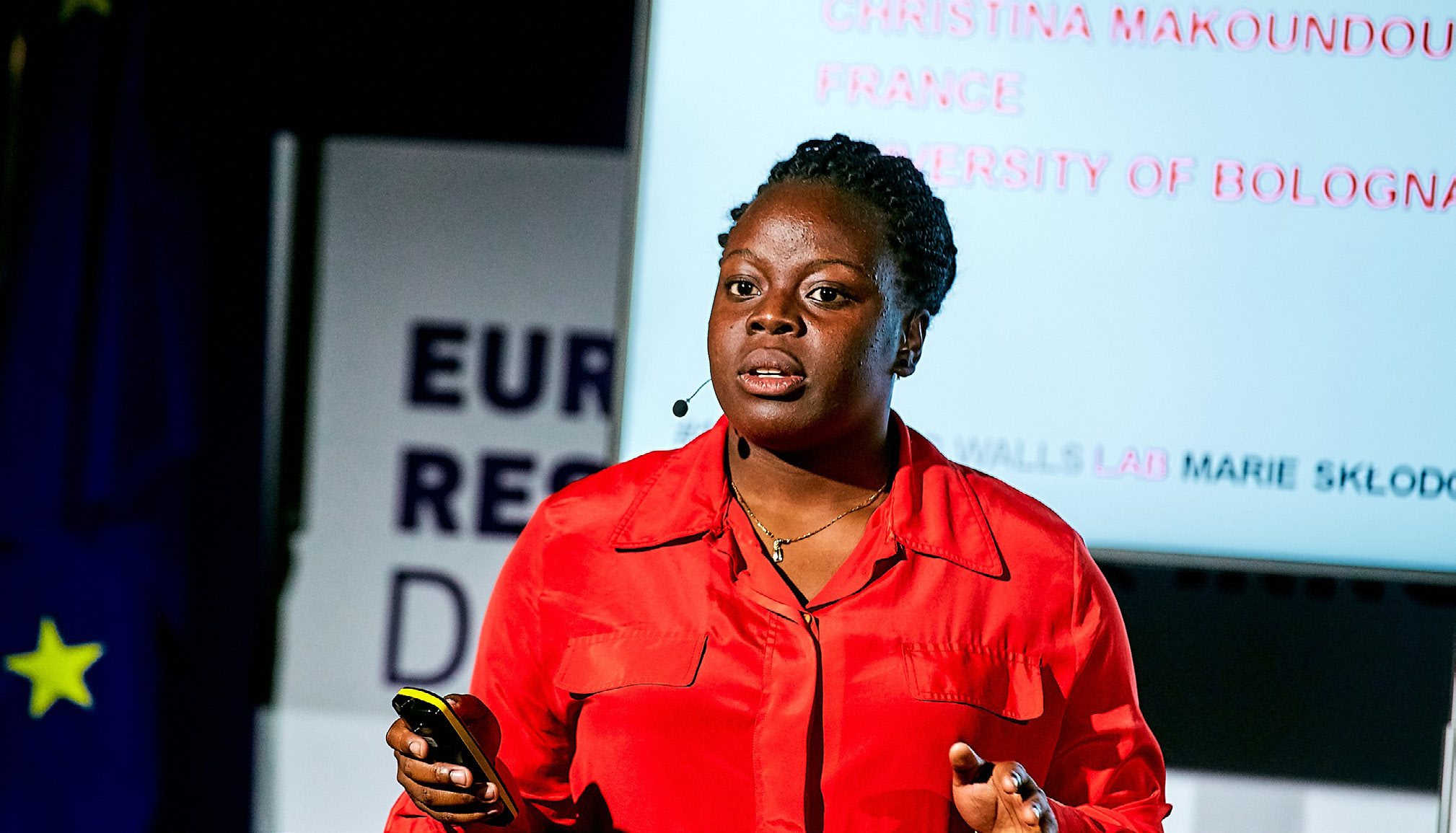
Christina believes in the positive impact that youth can have on the world no matter from where they are from. Involved in various volunteering activities, she is continuously looking for opportunities to meet her peers and, above all, to learn. “I tend to be extremely active as an international volunteer in the framework of sports events, European solidarity corps, European voluntary service, etc. During these volunteering activities, I have met amazing young people from several continents,” she says.
ONE YOUNG WORLD SUMMIT
She recently became aware of the One Young World Summit whose purpose is to identify, promote and connect the world’s most impactful young leaders to create a better world, with more responsible and effective leadership. Christina is looking forward to participating in this summit hopefully in 2022. “I follow the event communications and the discussions they propose very closely. I really would like to attend this summit one day and to meet brilliant individuals from everywhere. I can say that my position as an MSCA fellow now allows me to meet international researchers, inspirational people,” adds Christina with enthusiasm.
While waiting for the summit, our fellow had the opportunity to attend a discussion led by the One Young World Africa network/community: “The objective of the discussion was to point out some problems linked to the history mainly, and to enhance the entrepreneurship behaviour of the young generation, to be aware of their capabilities and to empower the ideas or projects coming for Africans or African descendants,” explains Christina.
Should the concept of #Blackunity (and #Unity) appear as a solution to tackle systemic racism and inequalities? “I think we reach the point where we should not differentiate people because of borders. If we aim to work together, everyone is a strength, no matter if the person is based in Nigeria, Canada, Brazil, Spain, New Zealand or Japan. I think the #Blackunity and unity, in general, is the definition of this state of mind,” answers our fellow.
INSPIRATION
Rooted in a “double culture” (from France, the country where she was born and raised, and from the country where her parents were born), Christina considers this situation as an advantage and a pride: “I have an incredible chance to have a “double culture”. This opened me to the world at a very young age.”
Among others, Christina’s inspirations come from black or African entrepreneurs.
What’s more, Christina is pleased to share with us the list of the 100 most influential young Africans that was released on 4 November 2020.
Black or African entrepreneurs who inspire me
Moussa CAMARA, Founder and President of «Les Déterminés» , which aims to help and support people with entrepreneurship/professional projects.
Marie DASYLVA, Founder of Nkaliworks, an empowerment/coaching agency supporting the victims of discrimination, microaggressions or even denial of skills.
Thione NIANG, Founder and CEO of GIVE1PROJECT and JeufZone Farms, diplomat, lecturer and social entrepreneur. He notably worked with Barack Obama when he was president and received several awards.
Gloria ADE and Gipsy ILUNGA, Co-founders and CEOs of Japade&co, a cooperative working with small producers and labs in Africa.
Denis MUKWEGE, Gynaecologist Founder of the Panzi Foundation and Mukwege Foundation. He received in 2019 the Nobel Peace Prize for his effort and action against wartime sexual violence.
Fatoumata KEBE, Astrophysicist and educator specialising in space debris and author of the book La lune est un roman (The moon is a novel). She was a student at Sorbonne University.
EMPOWERING IS KEY
According to Christina, empowering young, female, African and black entrepreneurs is vital in enhancing diversity. This should be done by highlighting and contributing to the discussions to praise the numerous initiatives they launch. She mentions, amongst other actions, Afrogenius, which aims to spread scientific knowledge and the Instagram account tous.afro, whose purpose is to raise awareness about African traditions, cultures and languages.
Christina highlights how important it is to recognise the work done by African and black entrepreneurs and gives a few tips on how to impact diversity positively: “Consider black people when they apply to grants, scholarships, positions… consider their education, let them express themselves when they are and feel concerned.” Moreover, “Don’t / never hide negative/harmful/toxic behaviours behind humour or habits/usual practices” she adds.
“The world of tomorrow starts today, and no matter our skin colour, our citizenship, our field, we should all be actor of the positive change”.
MCAA EDITORIAL TEAM
Integrating into a new environment can be challenging. How does diversity influence the process of integration? Yahaya A. Yabo, an Early Stage Researcher (ESR), talks about his experience and what can be done to support researchers through the process of integration.
INTRODUCTION
Integration is key to achieving a successful research outcome especially for non-indigenous researchers. It is one of the key indicators for measuring the suitability of newly recruited researchers and could be used as the basis upon which their contracts may be extended beyond the probation period. Integrating very well into a team and having a good working relationship with all members improves the mental health of researchers. However, the process of integration could be very difficult for some researchers, especially those working or studying in a new country. For some people, it may take more than the typical six-month probation period to fully integrate into their new working environment. Working culture and conditions differ from one laboratory to another, in some cases even indigenous researchers need some time to acclimatise to their new laboratory.
MY BACKGROUND
In addition to my basic and secondary education, I trained as a veterinarian in Nigeria. Then, I did my master's in Molecular Biology in Brussels. Currently, I am an MSCA ESR, doing a PhD at the intersection between Molecular Biology, Bioinformatics and Neuro-Oncology at the Luxembourg Institute of Health and the University of Luxembourg. My doctoral project is part of the MSCA Innovative Training Network (ITN) called GLIOTRAIN4 .
WHY AN MSCA ESR FELLOWSHIP?
I applied for an MSCA fellowship because it is one of the most prestigious and generous fellowships that give so much attention and funding to the training of ESRs. With the training opportunities attached to the fellowship, I hope to bridge the knowledge gap I have especially in transferable skills. Working in an MSCA project also provides a huge life-long networking opportunity as well as the chance to travel across Europe and beyond. In addition to doing research, I am also very passionate about travelling around the world. All these points informed my decision to apply for an MSCA PhD grant.

COPING WITH THE CHANGE IN ENVIRONMENT FROM YOUR HOME COUNTRY AND SETTLING IN EUROPE
Studying and/or working in Europe is quite different from what I was used to in Nigeria. Unlike Nigeria, doctoral students in Europe have all the necessary resources and support for their studies or work. In terms of research, they have access to state-of-the-art equipment and have leading scholars as mentors. These are all aspects that make studying and working in the new environment a bit easier.
The most difficult part for me was adapting to the weather, particularly the short cloudy winter days with little sunlight. The cosmopolitan nature of most European cities entails the possibility to meet people from different cultures. Socialising in this multicultural setting was a bit difficult at the beginning.
BENEFITS OF BEING PART OF AN MSCA FELLOWSHIP AND BEING A RESEARCHER IN EUROPE
Being part of an MSCA ITN means working with many talented students and exceptional supervisors from both academia and industry. Meeting annually to discuss the different projects within the ITN is an important part of being an MSCA fellow. The secondments also provide an opportunity for ESRs to have industry experience. Having first-hand experience of working in both academia and industry helps ESRs to ponder with more skills and knowledge about which career path to follow.
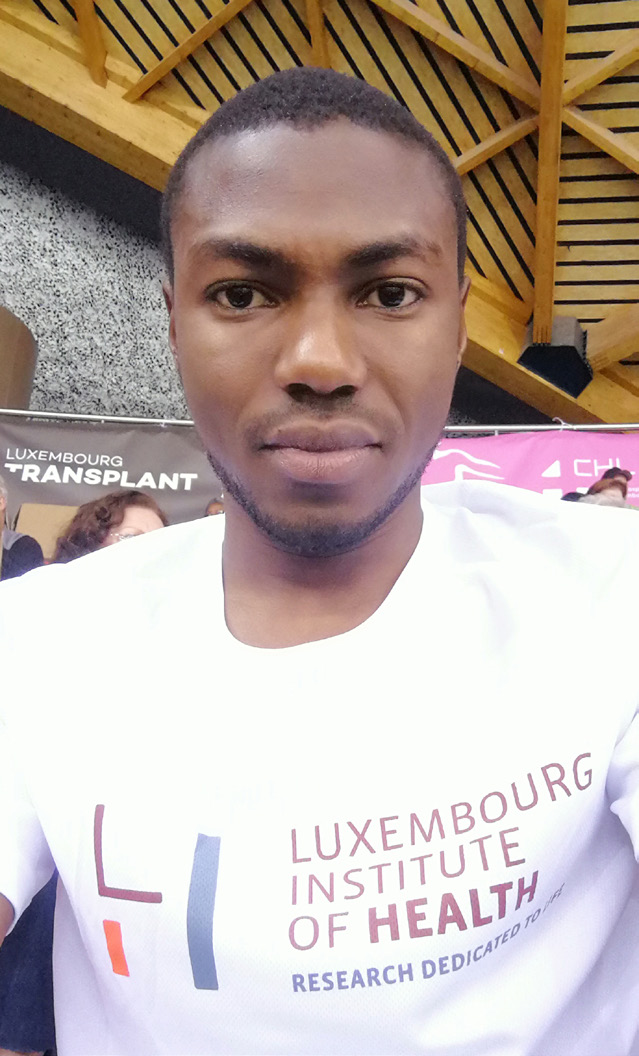
DIVERSITY IN THE WORKPLACE
Working in a diverse environment speeds up the process of integration and reduces a lot of mental stress associated with imposter syndrome. Although, in my own experience, most people are generally nice to newcomers, having someone around with a similar background who faced similar challenges is priceless. The cultural gap between the researcher’s country of origin and Europe may pose a communication barrier between the newcomer and the insiders. I believe that having more people from every part of the world will help in putting newcomers through, for example, the complex administrative processes they might encounter for the first time. Thanks to the diversity in my institute and the buddy system that pairs newcomers and insiders, my integration process was less cumbersome.
ONE THING WE CAN DO TO POSITIVELY IMPACT DIVERSITY
The first step is to open the space for more diversity. Starting from the recruitment stage, there is the need to understand the enormous challenges faced by students from developing countries. Conducting online interviews will improve the participation of people from different parts of the world. For instance, without the opportunity of having an online interview, I would not have had the chance to take part in the selection process. The same applies to other ESRs in my ITN project, who were not residing in Europe at the time of the selection.
YAHAYA A . YABO
MCAA EDITORIAL TEAM
PHD STUDENT
NORLUX NEURO-ONCOLOGY LABORATORY
LUXEMBOURG INSTITUTE OF HEAL
How to promote diversity and inclusion at work? We met Manuel Wachter, CEO of EqualPlus, a consulting company specialised in this field. For him, tackling bias and encouraging a sense of belonging are key to building an inclusive environment.
Manuel, in his own words
I am the founder and CEO of EqualPlus, a London-based consulting company providing inclusive performance solutions globally. I am from Guadeloupe, and my background played a significant role in my early interest in diversity and inclusion. Like many Guadeloupeans, my family heritage includes West Africans sold into slavery in the Caribbean, Central Africans lured to the region as indentured labour, and also West Europeans who ran sugarcane and coffee plantations, using slave labour when that was the law of the land. The legacy of that segregated history is still evident in today's Guadeloupe, in private and professional interactions alike. I grew up trying to be a bridgebuilder and fostering a sense of shared belonging in the diverse groups I was a part of, then and now.
I moved from Guadeloupe to the Paris area for my higher education, first studying literature in a French “classe préparatoire” and then international management at ESCP Europe. As part of the programme, I enjoyed experiencing life, studies and work placements in the UK, Spain, Morocco, Turkey and Brazil.
Upon graduation, I worked in financial services initially, and I volunteered in my free time at a Paris-based research institute of psychoanalysis that specialised in bias. I decided to reconcile my double interest in managing diverse teams and studying bias mitigation by going into leadership development and joining the World Economic Forum in Switzerland on a Fellowship.
After a few projects supporting gender equality, LGBT executives, refugee workers and race relations at work, I started EqualPlus in 2016. My ambition has been to combine all those learning experiences and author a methodology that would foster a shared sense of belonging and sustainably higher levels of performance at any organisation. Today, I am blessed to be part of a 30-person team operating in 13 countries and counting.
"I grew up trying to be a bridge-builder and fostering a sense of shared belonging."
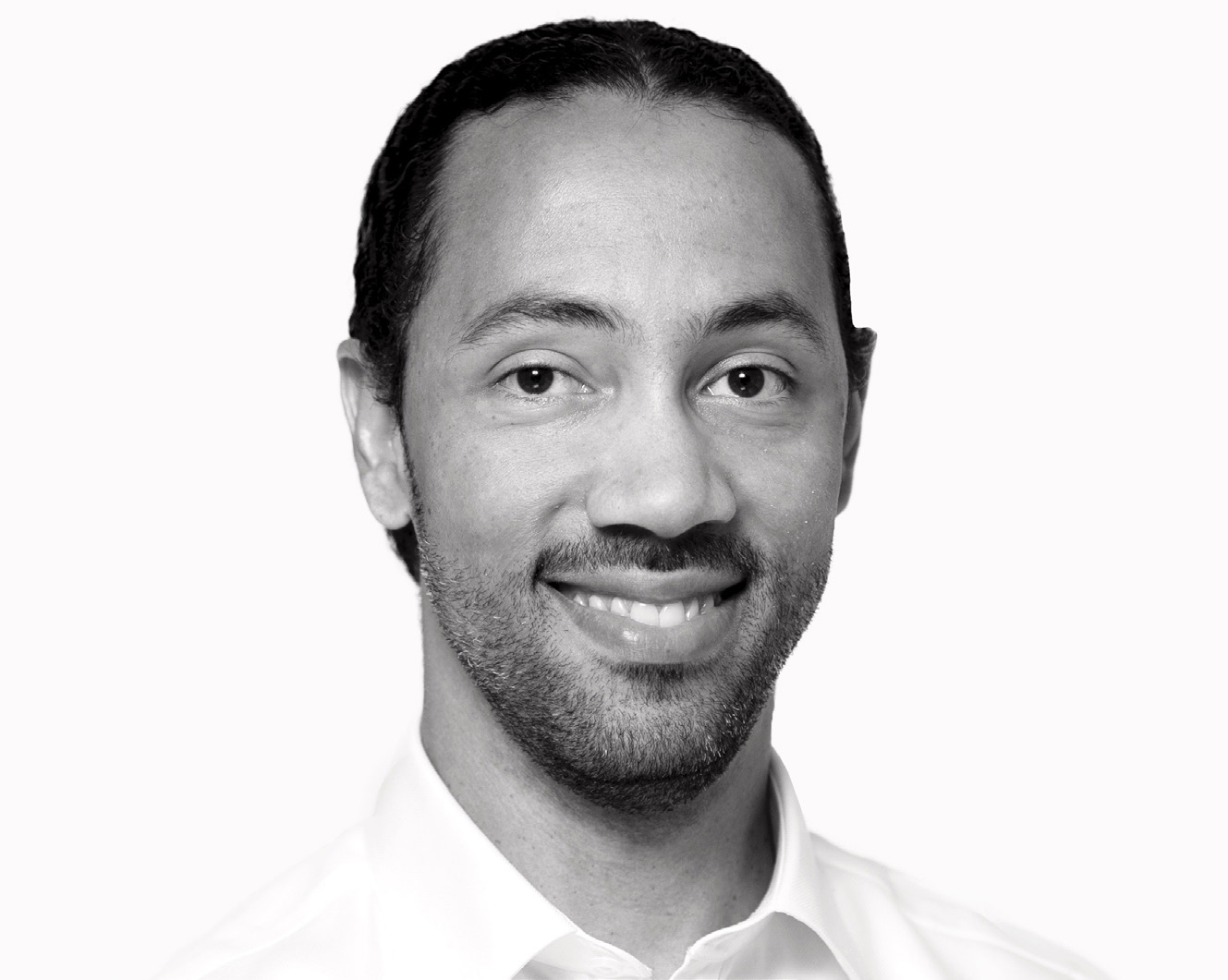
For Manuel, the decision to specialise in diversity and inclusion was the result of his personal journey. “I have always known that when you don't belong in the dominant group, you need to deal with the extra mental strain of trying to fit in, navigating and anticipating microaggressions, etc,” he explains. “This is a losing game for teams not being able to leverage the full talent of certain members, and also for the individuals themselves, whose sense of belonging, mental and physical health, as well as their future career prospects all get impacted as a result.”
According to Manuel, promoting inclusion and diversity can help create an environment where people can not only work better together, but also increase their level of wellbeing. “When everyone can deconstruct stereotypes, attribute talent and credit where they are due, and create an environment where all voices matter – that is the winning combination that makes me come alive. The work is deeply personal to me.”
TACKLING BIASES TO PROMOTE INCLUSION
One of the first steps towards inclusion is to challenge biases, which are cognitive shortcuts likely to bring us to the wrong conclusion. As Manuel explains: “We have a responsibility to pay attention to what biases we have about other human beings.” It is therefore paramount to take a moment to review the facts before making a decision, so that we can collaborate better with others who are from different backgrounds.
This is why EqualPlus Ltd proposes to coach organisations committed to adopting inclusive practices. “Every organisation that reaches out to us starts by explaining how they are unique,” says Manuel, when he explains the methodology. Once the profile of the organisation has been clearly defined, the strategy is formulated. It is based on the following three pillars:

- Getting the data (through quantitative and qualitative research) to identify the specific structural and cultural barriers to inclusion in the organisation;
- Delivering training on conscious inclusion (understanding what bias is, where it comes from and how to mitigate it);
- Ensuring the new inclusive culture sticks over time (by redesigning the processes, monitoring the data, and coaching leaders as role models of inclusion).
What makes this type of service unique is the wide spectrum of nationalities and languages represented by EqualPlus’s consultants. “We often work with organisations spanning various countries and cultures, and we make sure to deliver the service through our local experts, who have an intimate understanding of the culture and the language. This idea of global reach and local service is absolutely core to how we approach the work. It is about respecting and appreciating the local diversity,” explains Manuel.
‘IF YOU CAN NAME IT, YOU CAN TAME IT’
The best practices to enhance inclusion and diversity at work can start with considering the data before taking a decision. “The general idea is to figure out ways to make more deliberate decisions. This can include removing all sorts of triggers to our biases, for example by anonymising CVs, if we are hiring. It can also mean leveraging tricks from behavioural design research, in particular around perspectivetaking,” says Manuel.
Appointing a person who will help consider all aspects and avoiding groupthink before making a collective decision is another solution proposed by Manuel. “My general motto is ‘if you can name it, you can tame it’. If we find ways to name any assumption at play, conscious or not, we are much more likely to end up making evidence-based decisions. I'll add that our willpower gets tired quickly, so the more we can tweak our processes so we are nudged toward deliberate thinking, the better,” he concludes.
Interested?
Get in touch with Manuel and find out which EqualPlus inclusive performance solution will help you foster a sense of shared belonging among your employees.
MCAA EDITORIAL TEAM

Cross-border mobility is a unique experience shared by the vast majority of MCAA members. While its professional benefits are clear, it also entails a high degree of cultural integration into a new country, which can be mentally challenging. Sasha Ivashchenko, MCAA Editorial Team member, explores the benefits and downsides through her own relocation experience.
Cross-border relocation of researchers is automatically associated with Marie Skłodowska-Curie Actions and is widely considered an inseparable part of one’s scientific career. It goes without saying that such a move includes many benefits.
ADVANTAGES OF RESEARCH MOBILITY
Firstly, it is an adventure. And who does not like an adventure? With the world rapidly changing around us, more and more people are keen to explore new places and experience new cultures. No matter what background you are from or what you are striving to achieve, you will most certainly want to indulge in the multicultural boiling pot of foreign experiences. After all, every research starts with a desire to explore. There is a bit of Indiana Jones in everyone who is reading this Newsletter!
Secondly, it is no secret (it’s actually a proven fact) that cross-border relocation within academia benefits careers. Research mobility allows you to open new horizons, see your field from a new perspective, learn new techniques, experience alternative research styles, and learn from the best. According to a recent study published in the Journal of the Royal Society Interface5 , research mobility results in an average of 17 % increase in the number of research citations. One in four Nobel Prize recipients performed his/her award winning research in a foreign country. So, why shouldn’t you?
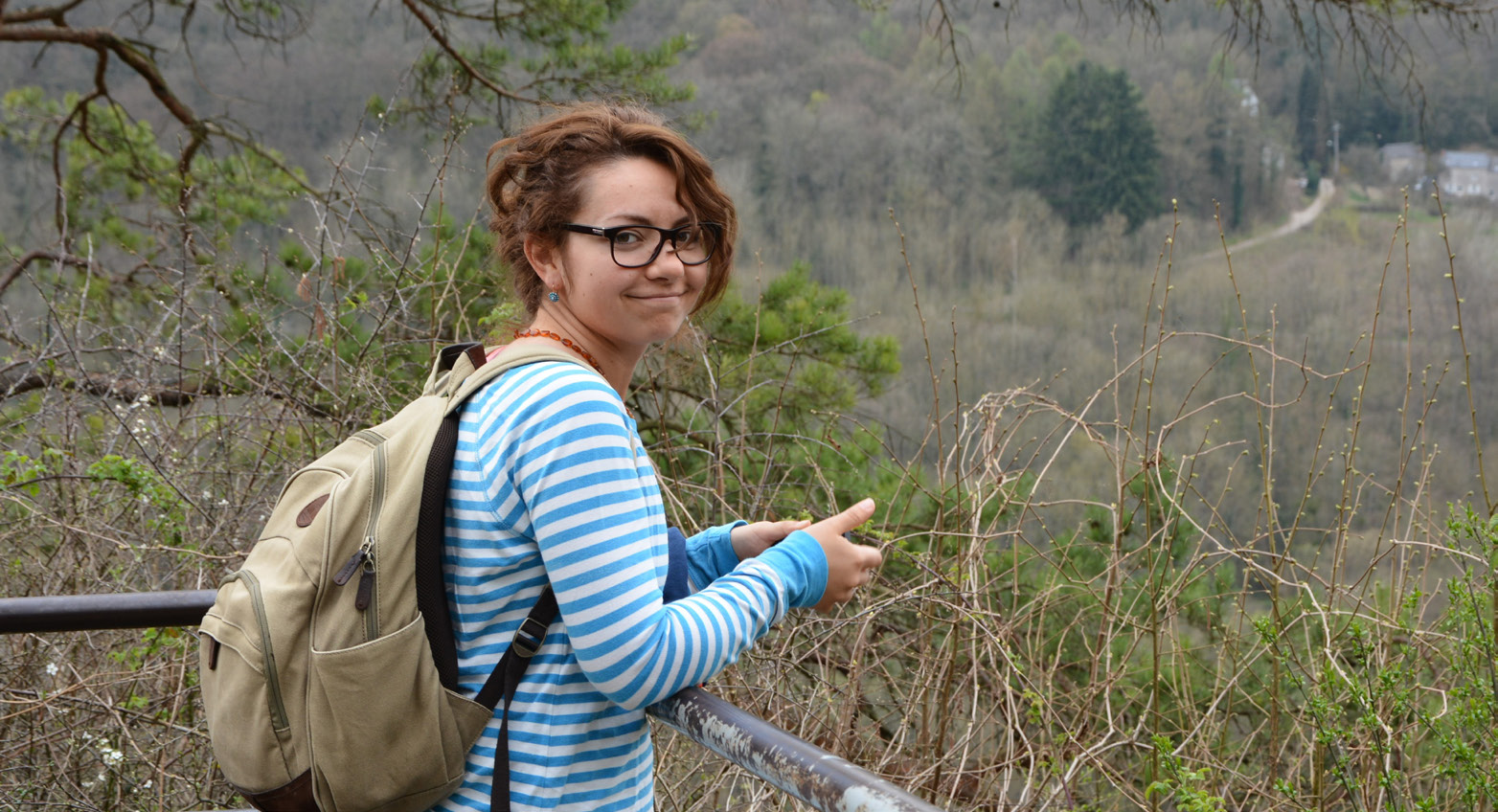
THE DISADVANTAGES OF RESEARCH MOBILITY
The list of possible advantages from cross-border mobility seems never ending. However, what people often do not mention out loud is that this relocation is a bit different from a holiday abroad and can be mentally challenging. This article is part of a special MCAA Newsletter devoted to the subject of diversity and discrimination. When I hear those terms, the first image that comes to my mind is gender- or race-based discrimination. However, in a highly multicultural scientific world, there is at least one more dimension scientists are judged on: the degree of their cultural integration into the country they are working.
Cross-border mobility, especially at an early stage in your career, makes you look at everything from a different perspective. For most of your life, you perfected your academic and social skills, making sure you will be sharp, fast, creative, and to the point. Each of these skills, even the mastership of occasional chit-chat at the coffee machine, influences the probability of one’s promotion and strongly differs from country to country. In the case of cross-border relocation, just overnight, you become a cultural minority, and these skills may need to be (re)mastered from scratch. Even though cross-border mobility is very common, the majority of researchers will move only once or twice in their life6 before settling down. In the 11 % of cases, this move will even result in complete rescission of research connections or collaborations with their country of origin7 . Therefore, social integration into the new “home” will be of critical importance.
MY OWN RELOCATION
In February 2013, I moved to the Netherlands to start a PhD project. I was accepted for an Early Stage Researcher (ESR) position within an EU consortium called Trace’nTreat. I was going to work on the topic I always dreamt about and my supervisor was a well-acclaimed expert in the field. Back then, being a young and restless 24-year-old Ukrainian, I could not be happier and more excited about the change. I had three years to finish the project. I knew that it would be difficult, but I was up for the challenge. Two small suitcases and one flight later, I landed in Amsterdam.
I don’t think that I need to explain that Ukraine and the Netherlands are very different countries. I am not talking about economics or history, these differences are to be expected. The cultural shock I experienced was different from anything I could have imagined.
I was born and raised in a small town of about 20 000 people. One can look at my upbringing as challenging, but I feel blessed. I am from a multi-cultural family. I was raised by a single mother who set an excellent example as a strong woman and always stressed the importance of education. Looking back, I never had stereotypically “normal” hobbies and had a rather peculiar style. Yet, work “weird” did not exist in our home. I discovered the beauty of physics at an aeronautic summer camp when I was 11. After that, all my free time was filled with private physics lessons. I studied at the top university in the country on a full scholarship. There was a lot of competition, but we (students) loved it. Until moving to the Netherlands, all my days were filled with studying, work, and some necessary rest.
I would love to say that I instantly integrated into Dutch society and made many Dutch friends, but the reality was a bit different. First, my research group and the entire department was predominantly Dutch (probably about 90 %). A simplified version of how I saw a typical Dutch lifestyle at that point can be summarised as: work hard, party hard, and find a balance between the two. My colleagues often had scheduled lunches and coffee breaks. Those breaks strated on the same time every single day, independent of whether you wanted to take a break or not. Work-related conversations were forbidden during the breaks, yet they would openly share details I could only discuss with my GP. There were regular after-work drinks, yet we rarely met during our free time (e.g. on the weekend). My colleagues frequently switch to 100 % Dutch around the coffee table, yet avoided using it while talking to foreigners directly. None of these things were making any sense to me, and my world was literally turned upside down. From a scientific point of view, I was achieving great individual results. At the same time, organisation of collaborative experiments and projects was way more challenging for me, compared to other Dutch colleagues. I knew that the core of the problem was in cultural integration, but I did not know how to fix it.
THE CULTURAL VOID
For the vast majority of my PhD, I was constantly switching between two social interaction modes. On the one hand, I was trying to blend in by mimicking the Dutch behaviour (as recommended by cultural integration courses). On the other hand, I would ricochet to an extreme Ukrainian version of myself, probably as a compensation for the failed Dutch act. Neither of these tactics helped, and I just ended up being stuck somewhere between the two. I found myself stuck in a cultural void, where I did not know anymore where to place myself or how to act. My project consortium provided a lot of professional training to boost my technical skills, but none of those courses was targeting the issues I was really struggling with.
FILLING THE VOID AND BRIDGING THE GAP
After a few years of living in the Netherlands, probably also after getting a bit older, I finally started to accept the fact that I was moving further and further away from my Ukrainian roots. At the same time, I realised that I would never become Dutch. The vast majority of my adult life was spent in the Low Lands, where I learnt how to find a better balance between work and leisure time. I learnt the value of daily meaningless chit-chat with colleagues, that help to maintain good connections, as well as better group dynamics, which actually do help me in my work. A lot of things that did not make sense to me started making sense. Some still do not. Once I stopped forcefully trying to blend in and tried to understand from where people are coming, I was able to bridge the gap over the void between the two cultures. At last, the solution to my problem was not in trying to turn myself or other people into something they are not, but in accepting and respecting our differences. Sounds obvious, but it is often overlooked.
What have I learnt from my experience? What can I share with other MCAA members, especially ESRs? Each ESR will spend at least several years in a foreign country and will face challenges similar to the ones I faced. The years of your PhD project are intense, both academically and mentally. There will be many ups and downs and there will be times you feel you are on a roller coaster. So, just make it easier on yourself. Stay open-minded and try to find a good support team, because there will be things to complain about.
OLEKSANDRA (SASHA) IVASHCHENKO
MCAA NEWSLETTER EDITORIAL TEAM
MEDICAL PHYSICS RESIDENT, PHD
LEIDEN UNIVERS ITY MEDICAL CENTER
5 Petersen et al., J R Soc Interface, 2018.
6 Deville et al., Scientific Reports, 2014.
7 Petersen et al., J R Soc Interface, 2018.
Alice Onor acts in favour of migrants through the association Arcigay Arcobaleno, which aims to promote lesbian, gay, bisexual, transgender, questioning (or queer), intersex (LGBTQI+) persons’ rights. She told us about the activities she conducts and the challenges she faces.
Alice, in her own words
I am 29 years old, born and raised in Italy. I have lived abroad, in Ireland and France, for work and study-related reasons.
I have a bachelor’s degree in Translation and Interpretation, as well as a master’s degree in foreign literature. I am currently working as an English teacher, both in public and private schools.
There is no typical work day for Alice at the Arcigay Arcobaleno association. “Every person who knocks at our doors has a unique situation and different needs; usually we are contacted by someone who wants to meet us, then we set up a meeting to get to know each other and we try to figure out how we could help them best,” she explains.
Operating in the area of Trieste and Gorizia, Arcigay Arcobaleno gathers volunteers who work to promote LGBTQI+ persons’ rights. Activities encompass a large spectrum, from organising cultural events to spreading information related to sexual diseases like HIV/AIDS. Above all, the association provides safe spaces for LGBTQI+ persons.
A VULNERABLE GROUP
Arcigay Arcobaleno also takes care of migrants, as LGBTQI+ persons are particularly vulnerable within this group. According to the association's website, 72 countries criminalise LGBTQI+ persons (detention, death penalty). What’s more, being LGBTQI+ represents one of the main reasons people are forced to flee their country. The association aims to give support to LGBTQI+ migrants during their asylum procedure and to cooperate with NGOs dealing with refugees.

"Being LGBTQI+ isn’t the same experience everywhere in the world, and people like me are privileged and don’t really understand what people from other contexts might have had to go through."
“We try to provide guidance to migrants who come to see us and often don’t know how to deal with their already complicated situation; many people are afraid of being exposed within their own communities, many need support, looking for Italian classes or finding safe places to interact with others,” says Alice.
Challenges are multiple, as Alice highlights: “I am a volunteer, we all are, and we try to do our best where we can. I had to ‘learn on the job’ in many instances. What’s important is being a support to people who often have no one to talk to, and then take it from there.”
Language can also be a barrier. “Talking to people who come from a completely different environment can be tricky,” she adds.
Moreover, the diversity of situations covers realities that western Europeans are sometimes unable to conceive. “Being LGBTQI+ isn’t the same experience everywhere in the world, and people like me are privileged and don’t really understand what people from other contexts might have had to go through,” muses Alice.
In spite of the difficulties she faces on a daily basis, Alice underlines positive outcomes. “Sometimes we keep in touch even after they don’t ‘need’ us anymore,” she says. A few people previously helped by the association became “helpers” themselves, acting for example as interpreters to connect the association and other migrants in need of support.
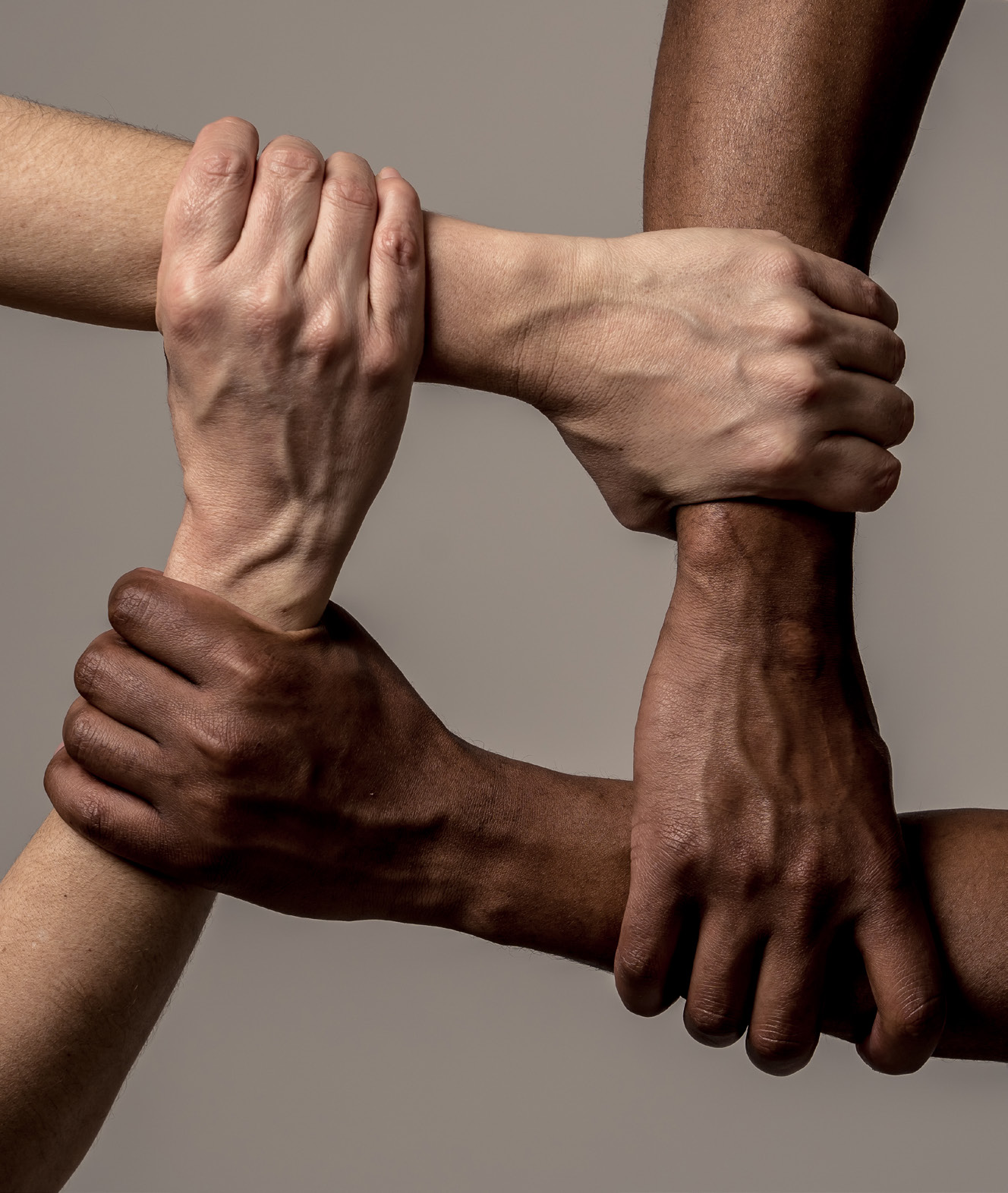
HELPING AND LEARNING
For the attention of those willing to help this specific group of vulnerable persons, Alice recommends to never judge and always listen. Recognising one’s own weaknesses can also be an asset: “I do my best to help out in every way that I can, but I also try to keep in mind that there are things that I cannot help with; in those instances I either find someone who can, or if even that isn’t possible, I still strive to be an emotional support,” says Alice.
The helper shouldn’t forget to be a learner at the same time: “It is important to look for information on the political and social situation of the country of origin of every person asking for help, to be better able to understand them and their journey. At the end of the day, we are all human though, and if everyone is willing to do so, there is always a way to connect with one another,” she concludes.
MCAA EDITORIAL TEAM
In this article, Dora Koller explains how receiving a Marie Skłodowska-Curie action broadened her horizons.
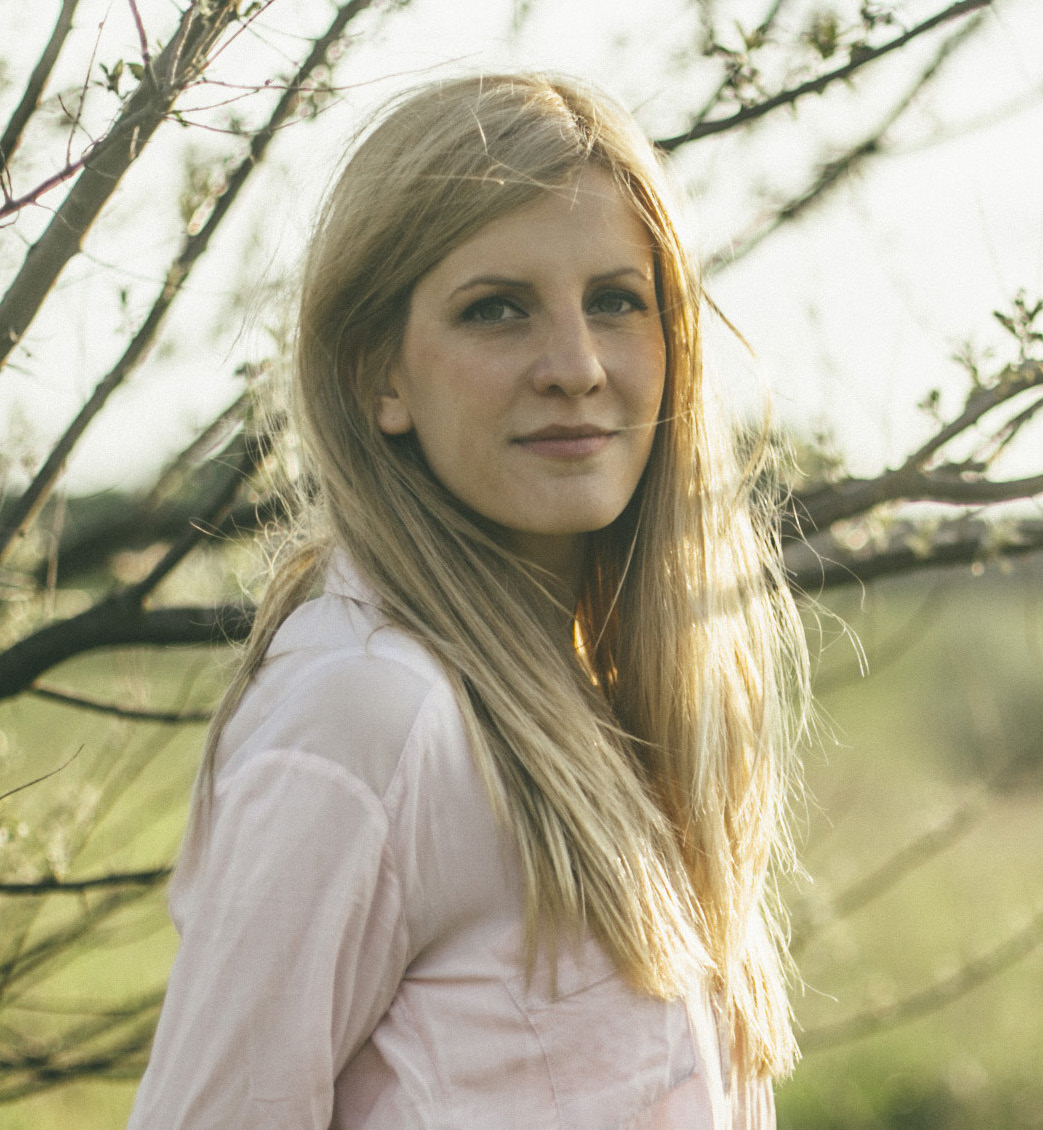
BEFORE MY MSCA PHD FELLOWSHIP
Academia is usually not a possible career path for people from lower and lower-middle classes. I went to high school in a little town in southern Hungary, where I knew only one person who was interested in science. Then, I went to university in the capital, Budapest. In my circle of student friends, I was the only one who came from a very modest background — and actually a troubled family. I often felt left out because of working two jobs to make ends meet, and so, I could not attend any social events. I heard phrases like “but it was your decision to work, why are you complaining about being tired and not having enough time to study?”, “why don’t you come to have lunch with us?”, or “why didn’t you travel anywhere during summer?”, and many others along those lines. All the time.
Being busy in order to provide for myself, I did not have the best grades during my undergraduate studies and therefore felt inadequate and had all the symptoms of impostor syndrome. When I started my master’s at Pázmány Péter Catholic University, I found a completely different environment. It was very supportive, so I was motivated to do better. Not to mention the financial help they provided to students with a high GPA (which I had as I did not have to work as much anymore) and suboptimal social status. I could even go for an internship abroad!
I was fortunate enough to get hired as a lab assistant (with a salary! Very modest, but still a salary, which is not common in academia) at Semmelweis University. Here they discovered my talent fast and supported me to grow as a researcher. I had two international colleagues, one of them had a Marie-Skłodowska Curie Actions (MSCA) PhD fellowship. He told me all about it. When he encouraged me to apply, I replied that I wouldn’t even try because I was not good enough for such a prestigious grant. However, I finally started to apply and got awarded a fellowship in Madrid, Spain.
AFTER MY MSCA PHD FELLOWSHIP
Since the time I was awarded the MSCA PhD fellowship, a whole new world opened to me with endless opportunities. In my own and other MSCA networks, many people did not know their options and privileges of having this grant. The management of our network was not spot on, but the ones who wanted could get information/help through other MSCA platforms. I went to all MCAA conferences as well as a scientific conference in the United States thanks to an MCAA micro grant. After each MCAA conference, I always returned to work very motivated and enthusiastic. I liked that the conferences dealt with very important but often overlooked topics, such as mental health in academia, gender balance and grant writing. And I liked how, through the annual conference, the MCAA creates a very supporting community. At the conferences, I had the chance to talk to many other fellows, to European Commissioners and to MCAA Board Members. Having an MSCA PhD Fellowship can be used for networking very easily, in case there is interest and for finding the appropriate tools to do so. Apart from professional connections, I made friends in my own network, but even with other fellows.
Apart from the top-tier scientific projects the MSCA programme has to offer, the obligatory mobility also helps a lot in career development and personal growth. Adapting to another culture is a huge challenge, but it is definitely worth it. In only three years, I lived in Hungary, Spain and Portugal (where I spent my secondment). It was an utterly amazing experience! I defended my PhD recently and got accepted as a Postdoctoral Associate at Yale University, which I believe could not have been possible without the MSCA PhD Fellowship.
TAKE HOME MESSAGE
Many people don’t have the courage to apply, because they don’t think they have a chance — especially in underdeveloped regions or where the society is not supportive. Just apply! The worst that can happen is that you do not get the grant. But then you go on and on until you get one. I acknowledge that it is very hard to deal with rejections. But without rejections there is no success, and we always learn from our mistakes. I have social anxiety and ADHD, but I am constantly trying to overcome my fears. Apart from courage, many people do not know their options. Do not wait for others to tell you your options, go after them yourself! I am always trying to follow the 10x rule — I am always taking 10 times the actions of other people, even though I am terrified of the unknown and always think I am not good enough at the beginning.
DÓRA KOLLER
DIVISION OF HUMAN GENETICS, DEPARTMENT OF PSYCHIATRY YALE UNIVERSITY SCHOOL OF MEDICINE